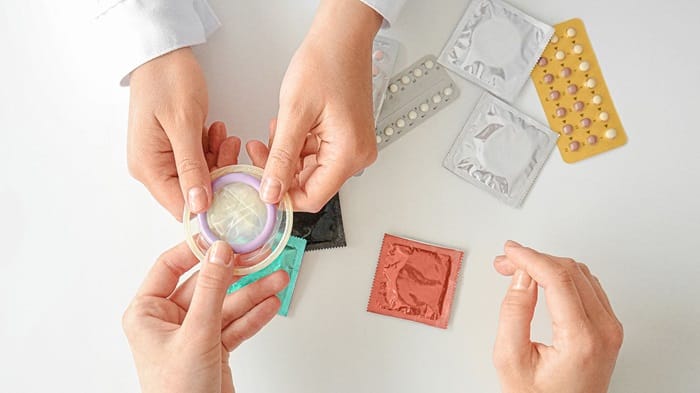Navigating the complexities of the female body can be challenging, especially when it comes to understanding the impact of birth control on gynecological health. With birth control usage prevalent among women of reproductive age, comprehending its various effects is essential for making informed decisions. Birth control, also known as contraception, involves using medicines, devices, or surgery to prevent pregnancy. There are numerous types of birth control available, each with its benefits and potential risks.
Despite its widespread use, many women face decisions about birth control without fully grasping its impact on their overall health. This lack of understanding can lead to uninformed choices that may affect well-being. As an experienced gynecologist in Jaipur, I, Dr. Pankhuri Gautam, aim to provide you with a comprehensive guide to the effects of birth control on gynecological health. In this article, we will explore both the positive and negative impacts of various contraceptive methods, offering practical strategies and expert advice to help you navigate your options and make choices that best support your health.
10 Impacts of Birth Control on Gynecological Health
Birth control, both positively and negatively, impacts gynecological health. Here’s how –
Positive Impacts:
1. Menstrual Cycle Regulation:
By maintaining consistent hormone levels, birth control prevents the hormonal fluctuations that cause irregular periods. This regulation offers several benefits that help women manage their menstrual cycles more effectively:
- Decreases Heavy Menstrual Bleeding: Hormonal birth control can significantly reduce the amount of bleeding during periods, making them lighter and more manageable.
- Reduces Menstrual Cramps: Consistent hormone levels help alleviate the severity of menstrual cramps, providing relief from pain and discomfort.
- Shortens Duration of Periods: Many women experience shorter periods when using hormonal birth control, which can be more convenient and less disruptive.
- Helps Women with Irregular Cycles: Birth control can help regulate irregular menstrual cycles, providing more predictability and stability.
- Provides Relief from Menstrual-Related Anemia: By reducing heavy bleeding, birth control can help prevent anemia, which is caused by a significant loss of blood during periods.
These benefits collectively improve the quality of life for many women, allowing them to navigate their daily activities with greater ease and comfort.
2. Hormonal Regulation and Cancer Prevention:
Hormonal birth control methods, such as the pill, patch, and ring, can lower the risk of developing certain types of cancer by decreasing the frequency of ovulation and stabilizing the endometrial lining. Here’s how birth control contributes to cancer prevention:
- Decreased Risk of Endometrial Cancer: By reducing the number of menstrual cycles a woman experiences, hormonal birth control lowers the exposure of the endometrial lining to estrogen, which can decrease the risk of endometrial cancer.
- Lowered Incidence of Ovarian Cancer: Regular ovulation and associated hormonal fluctuations can increase the risk of ovarian cancer. Hormonal birth control reduces the frequency of ovulation, thereby lowering this risk.
- Long-Term Protective Effect: The reduced risk of endometrial and ovarian cancers continues for years after stopping birth control, providing long-term benefits.
- Beneficial for Women with a Family History of Cancer: Women with a family history of endometrial or ovarian cancer can gain a protective effect from using hormonal birth control, potentially reducing their overall risk.
- Role of Hormonal Regulation: Hormonal birth control methods stabilize hormone levels, which helps in reducing cellular proliferation (the growth of tissue cells) in the ovaries and uterus, further lowering cancer risks.
3. Pelvic Inflammatory Disease (PID) Prevention:
Certain birth control methods, such as the pill, IUD, and shot, can help prevent Pelvic Inflammatory Disease (PID), a severe infection of the female reproductive organs that can lead to infertility. These methods work by thickening cervical mucus, making it more difficult for bacteria to ascend from the vagina to the upper reproductive tract. Here’s how they contribute to PID prevention:
Here are some significant changes –
- Thicker cervical mucus blocks pathogens.
- Reduced risk of chronic pelvic pain.
- Lower likelihood of ectopic pregnancy.
- Decreased need for antibiotic treatments.
- Helps in maintaining long-term reproductive health.
4. Management of Endometriosis:
Hormonal methods, such as pill, patches, and hormonal IUDs, suppress ovulation and reduce menstrual flow, which in turn decreases the growth and shedding of endometrial-like tissue outside the uterus. By reducing or eliminating menstrual periods, these methods can alleviate pain, inflammation, and other symptoms associated with endometriosis, improving the quality of life for those affected by the condition.
Here’s how it helps in the management of endometriosis:
- Reduces pelvic pain.
- Decreases menstrual flow.
- Lowers inflammation.
- Improves quality of life.
- Provides a non-surgical treatment option.
5. Acne Improvement:
Some birth control pills can help improve acne by regulating hormones that contribute to breakouts. Hormonal birth control stabilises hormone levels, particularly androgens, which are known to increase oil production in the skin.
This makes hormonal birth control a practical option for women struggling with acne, improving skin health and appearance.
Here is how it helps improve our skin and acne improvement-
- Reduces androgen levels.
- Decreases sebum production.
- Minimizes acne breakouts.
- Improves skin texture.
- Enhances self-esteem.
Potential Benefits and Considerations of Birth Control on Gynaecological Health
6. Impact on Mood and Mental Health Effects:
Hormonal birth control can influence mood and mental health, potentially causing changes such as irritability, anxiety, or depression in some women. It affects the balance of neurotransmitters in the brain, crucial in regulating mood. Women need to monitor their mental health and discuss any concerns with their healthcare provider to find the most suitable method.
Here’s how it can affect our mood and mental health-
- It May cause mood swings.
- It Can lead to anxiety or depression.
- Some women experience improved mood stability.
- The Impact varies from person to person.
- Requires monitoring and consultation with a healthcare provider.
7. Breast Tenderness:
Some women may experience breast tenderness (breast pain) when using hormonal birth control methods. Hormonal changes caused by birth control, especially those involving estrogen, can increase sensitivity and fullness in breast tissue. Here are some major changes and solutions:
- Common side effects of hormonal birth control.
- It Usually subsides after a few months.
- It Can be managed with supportive bras.
- It May require dose adjustment.
- It is essential to discuss this with a healthcare provider if persistent.
8. Impact on Bone Density:
Certain birth control methods, like depo-provera (Birth control shots), may slightly decrease bone density. Estrogen helps maintain and strengthen bones. Lower levels of estrogen can lead to a decrease in bone mineral density, potentially increasing the risk of osteoporosis over long-term use.
These methods can reduce estrogen levels in the body, which is crucial for maintaining healthy bone density.
There are some tips for regulating these impacts-
- Requires monitoring of bone health.
- Calcium and vitamin D supplements may be recommended.
- Weight-bearing exercises help maintain bone density.
- Risk is higher with long-term use of Depo-provera.
- It is important to discuss alternative methods if you are concerned.
Risks and Considerations of Birth Control on Gynaecological Health –
9. Breakthrough Bleeding and Spotting:
Hormonal birth control changes the hormone levels in the body, which can initially disrupt the regular menstrual cycle, leading to unexpected bleeding between periods. Breakthrough bleeding and spotting are common side effects when starting a new hormonal birth control method.
Here are some major tips which are following-
- As the body adjusts to the new hormone levels, this side effect usually subsides after a few months.
- It Can be inconvenient but not harmful.
- It May require a change in birth control method.
- It is essential to track bleeding patterns.
- Discuss with a healthcare provider if persistent.
10. Blood Clot Risk:
Hormonal birth control, mainly those containing estrogen, can slightly increase the risk of developing blood clots (gel-like masses that manage bleeding). This risk is higher in women with predisposing factors such as smoking, obesity, or a history of cardiovascular issues.
Here are some major tips which are following-
- It is important to assess personal risk factors.
- Avoid smoking while on hormonal birth control.
- Monitor for symptoms of blood clots.
- Choose lower-risk birth control methods if concerned.
- Discuss alternative options with a healthcare provider.
Conclusion
Understanding the impacts of birth control on gynecological health is essential for making informed choices that align with your personal health needs. As an experienced obstetrician and gynecologist, I, Dr. Pankhuri Gautam, am dedicated to offering you expert guidance and personalized care. Whether regulating your menstrual cycle, managing conditions like endometriosis, or addressing potential side effects, we are here to help.
Visit Dr Pankhuri Gautam’s clinic for trusted advice and tailored support. Our comprehensive approach to reproductive health has benefited many women. Contact us today to learn more about how we can help you choose the best birth control method for your lifestyle.






